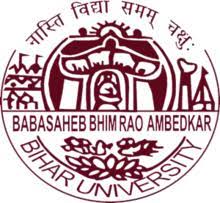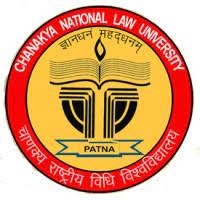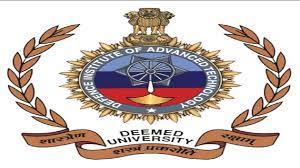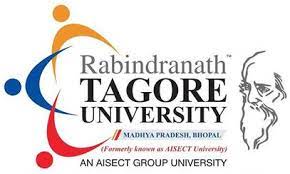A Ph.D. in Tribal Studies is a specialized doctorate that combines academic training with applied research. Graduates are expected to make an original intellectual contribution to applied fields of Indigenous Studies. They may specialize in any one of five thematic areas, or they may elect to choose a number of themes and pursue interdisciplinary research. In addition to graduate school, this degree program can lead to a career in tribal health or human resources.
The degree program in tribal studies is divided into six semesters, with three core papers in the field. Students must also complete three compulsory papers in English, Culture Studies, MIL (Manipuri), and English. Fieldwork is required in the sixth semester. The degree program is taught in English but requires extensive fieldwork. The curriculum is designed to provide a foundation for a doctoral degree in tribal studies.
The degree is a three-year program, with six semesters. The courses consist of core papers in tribal studies, along with English, Culture Studies, and MIL (Manipuri). The course also involves fieldwork. During the sixth semester, students must complete a research project under the supervision of an instructor. The BTS program is taught entirely in English. The coursework is rigorous and challenging, and graduates are prepared for careers in a range of fields.
Ph.D. in Tribal studies Eligibility
Candidates who want to take admission in Ph.D. must have a post-graduate degree in Tribal studies and its relevant discipline with at least 55% marks from a recognized university and must have passed the national level entrance examination or university level entrance examination. National level entrance exams like UGC NET / UGC CSIR NET / GATE / SLET or University entrance exams consist of written tests and personal interviews.
Benefits of a Ph.D. in Tribal Studies
Native American researchers are often familiar with the customs of their communities and the importance of respecting elders and visitors. The Turtle Mountain Chippewa, for example, are respectful of elders and guests. Paula Carter's dissertation will provide a healthy balance to studies of disease and dysfunction. Her dissertation is one of many benefits of a Ph.D. in tribal studies. It's also an excellent choice for individuals who are interested in cultural heritage, politics, or religion.
In addition to training in ethnological research and writing, tribal studies students will be able to apply their knowledge to solve important societal issues. Those with an interest in environmental and energy resources will be especially welcome, as they will be able to apply their knowledge to improve the lives of local people. A doctorate in tribal studies provides a strong foundation for professionals in the field. There are many potential careers for Ph.D. graduates, from tribal consultants to anthropologists.
A Ph.D. in tribal studies can open up many doors. It offers students a powerful foundation for their careers. They can become a teacher, a researcher, or an academic. Those with such a degree can make a positive impact on their communities and help them develop better communities. A doctorate in tribal studies also gives students a higher qualification. It may also help them get hired in a career they're passionate about.
The Career and Job Opportunities of Ph.D. in Tribal Studies
A Ph.D. in tribal studies is a great choice for those interested in the history and culture of indigenous peoples. Graduates of this program can pursue careers in many areas. Some of these areas are listed below. These career options are not exclusive to the field of tribal studies. They can also be used in non-Indian settings such as financial services, environmental planning, and entrepreneurship.
A Ph.D. in tribal studies can lead to a variety of career opportunities. Graduates will be able to work in nonprofits and tribal, state, or federal agencies. There are also many possibilities for legal careers. Law schools are also popular choices. A graduate with a Ph.D. in tribal studies may choose to pursue a law degree. Alternatively, a doctoral degree in NAS and an MA in another field might be a good option.
A Ph.D. in tribal studies will enable you to teach, research, and lead in diverse communities. Students who earn this degree will be able to improve education and practice in many different settings. For example, they can help other tribes in their communities, or create new educational opportunities for them. A Ph.D. in tribal studies can also be used in a field that is often ignored by mainstream universities.
The Future Scope of Ph.D. in Tribal Studies
There are many different jobs for people with a Ph.D. in tribal studies. The field focuses on understanding the culture and history of Indian tribes. Graduates with this degree can work in a variety of fields, from anthropology to tourism. This program offers a challenging and rewarding education. It prepares students for higher-level qualifications in the field. The future scope of this discipline is bright and growing.
To help researchers better understand the needs and interests of tribal people, communities are creating ethics review panels. These panels, also known as tribal review boards, serve as independent oversight boards for research projects. Unlike community advisory boards, these panels are empowered to speak directly from the perspective of the local community and have direct oversight of research. As such, there is a demand for ethically compliant, culturally sensitive, and indigenously-based studies.
To help ensure the integrity of research, tribal governments are forming ethics review boards. These boards review manuscripts and presentations before they are published. The pre-review process protects the interests of the tribes and ensures that their cultures and practices are respected. Moreover, it enables researchers to engage in a collaborative approach with the tribes, which can result in more credible research.
Ph.D. Research Programme duration
The Ph.D. in Tribal studies course is a minimum of 3 years and a maximum of 5 duration. This depends on the university offering the course.
Fees for research program for Tribal studies
The average fee for Ph.D. in Tribal studies degree is between INR 50000 and INR 500000.
 5 Years
5 Years
 PhD
PhD
 Research
Research

































 back
back